Research topics:
Advanced Materials – Green Chemistry
Keywords:
Polymers and biopolymers, Thermal properties, Mechanical and viscoelastic properties, Density, Interphases
Contact person:
Maria Cristina Righetti – mariacristina.righetti@cnr.it
+390503152068
Location:
Pisa
Research activity carried out in this laboratory focuses on:
1) study of thermal, volumetric, mechanical and viscoelastic properties of polymers and biopolymers, copolymers, polymeric blends, composites and nanocomposites;
2) study of the properties of the nanometric interphases in polymeric and biopolymeric systems, with the aim of obtaining more detailed and accurate interpretation and prediction of the macroscopic properties of these materials.
LIST OF AVAILABLE INSTRUMENTATION
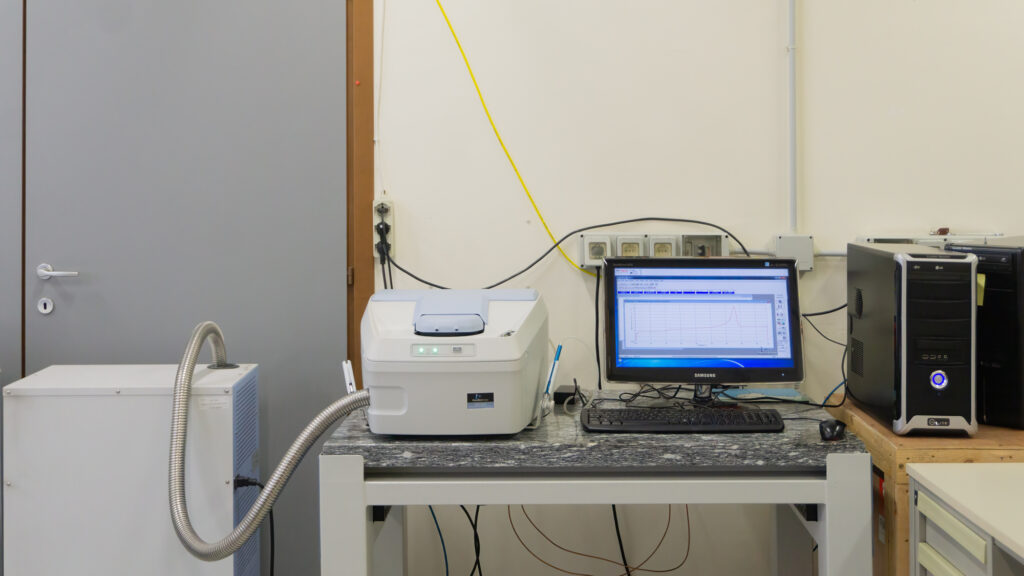
Differential scanning calorimeter (DSC) and Temperature-modulated differential scanning calorimeter (TMDSC) Perkin Elmer DSC 8500. Phase transitions can be investigated at various cooling and heating rates (1 K/min – 100 K/min). The temperature modulation allows accurate quantification of the amorphous and crystalline phases and interphases in polymeric systems. The instrument is equipped with an IntraCooler III as refrigerating system, to operate from – 80 °C.
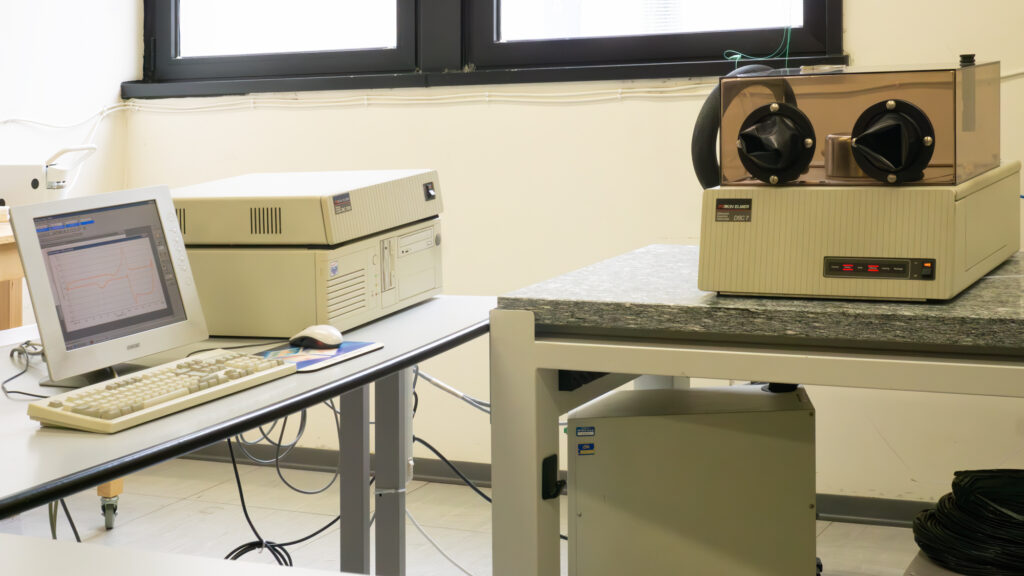
Differential scanning calorimeter and Dynamic differential scanning calorimeter Perkin Elmer DDSC7 with temperature modulation. The instrument is equipped with an IntraCooler II as refrigerating system, to operate from – 60 °C.
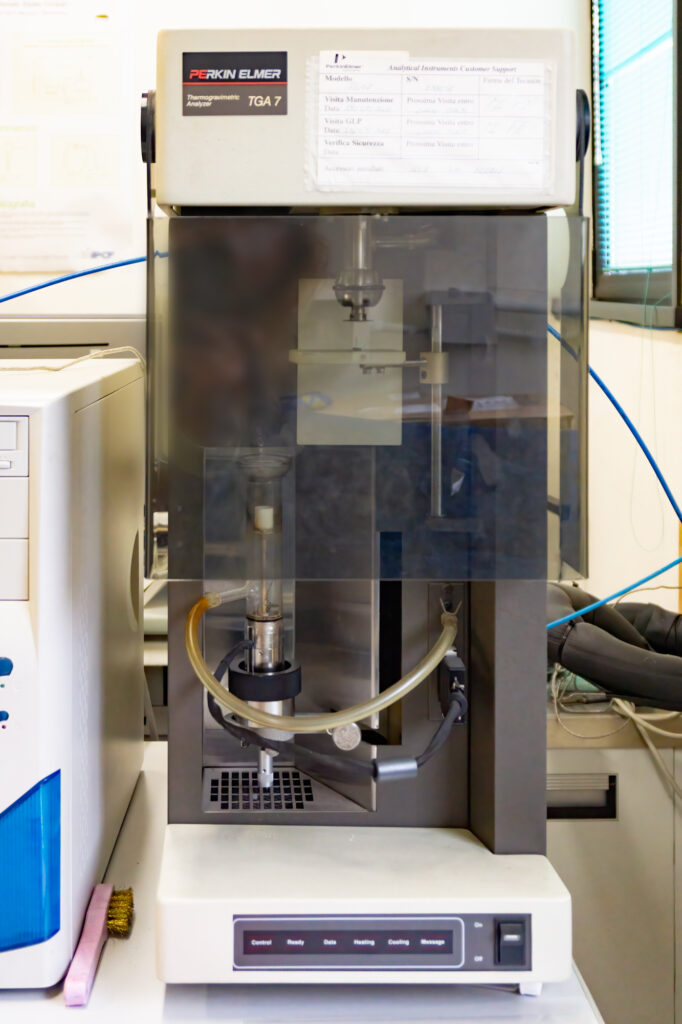
Thermogravimetric analyser Perkin Elmer TGA7 for the study of the thermal stability and degradation of polymeric materials in nitrogen or air atmosphere.
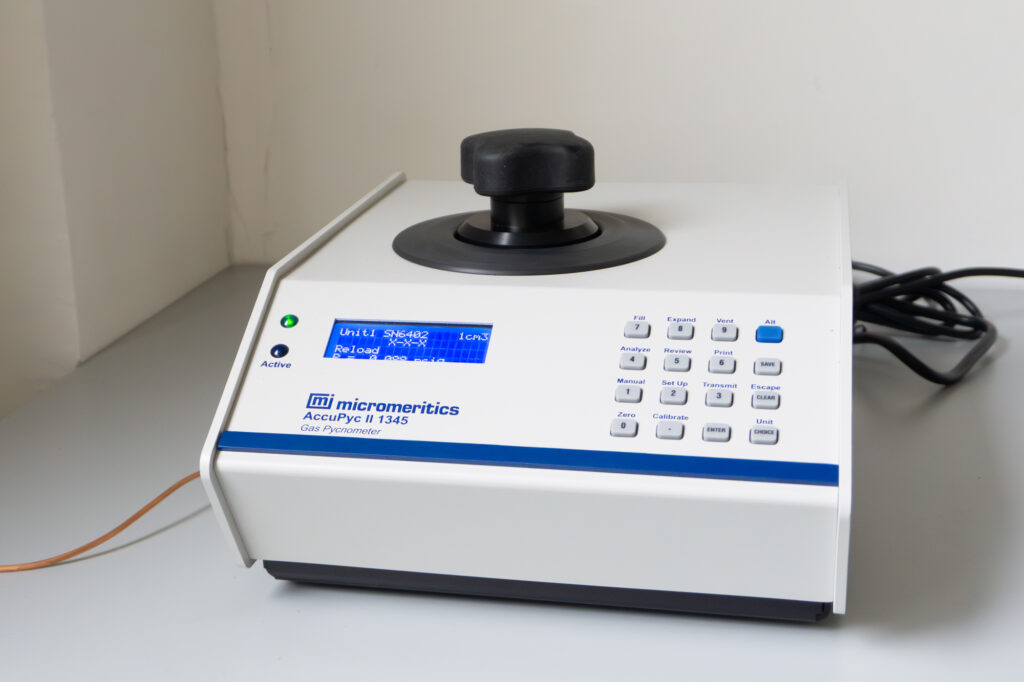
Gas pycnometer (operating with nitrogen or helium) Micromeritics AccuPyc II 1340, for density measurement of solid polymeric materials, in combination with an analytic balance Sartorius RC 210 D (0.01 mg resolution).
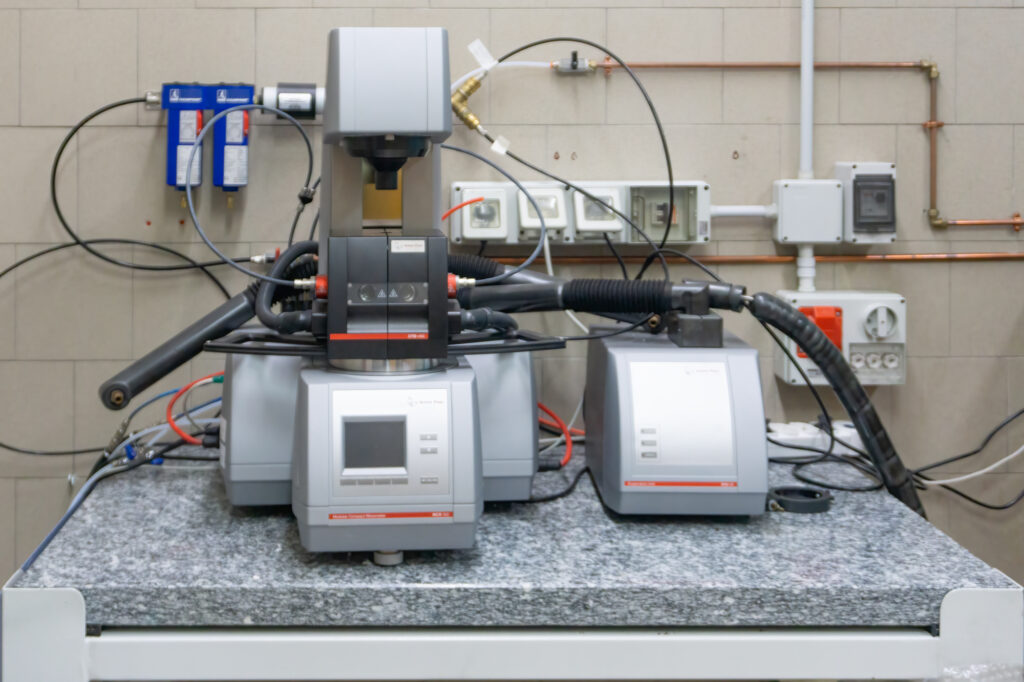
Modular compact Rheometer Anton Paar MRC302 equipped with dynamic mechanical thermal analysis (DMTA) accessories operating in tension and torsion mode, heating system and cooling system with liquid nitrogen (see also RheoLab)
